Recently, I have been searching high and low for shiso plants (or perilla, or beefsteak) – the leaves go extremely well with barbequed meats but are expensive and hard to find in supermarkets. We finally found the seeds while we were plant shopping with friends at World Farm. One packet however had 2,000+ seeds. 😲 Even with a 10% germination rate, this would give us 200 shiso plants!
So we decided to use this opportunity to do a little seed germination experiment! 🙂
When we first began our gardening journey, we came across numerous ‘best practices’ used to maximize seed germination rates. For example:
- Should we soak seeds in water overnight before planting them in soil?
- Should we germinate seeds in wet cotton pads or directly in soil?
- Do we need to germinate seeds in a 100% humid environment?
- How effective is plant vitalizer HB-101 in promoting seed germination?
In this 3-part series, we hope to answer some of these questions above by testing these variables; documenting our observations; and finally sharing our conclusions.
First up, here’s some background information on our test subjects.
The experiment
1. Soaked seeds vs. un-soaked seeds
For this experiment, we soaked half of our seeds in water overnight (for about 12 hours) before germinating them.
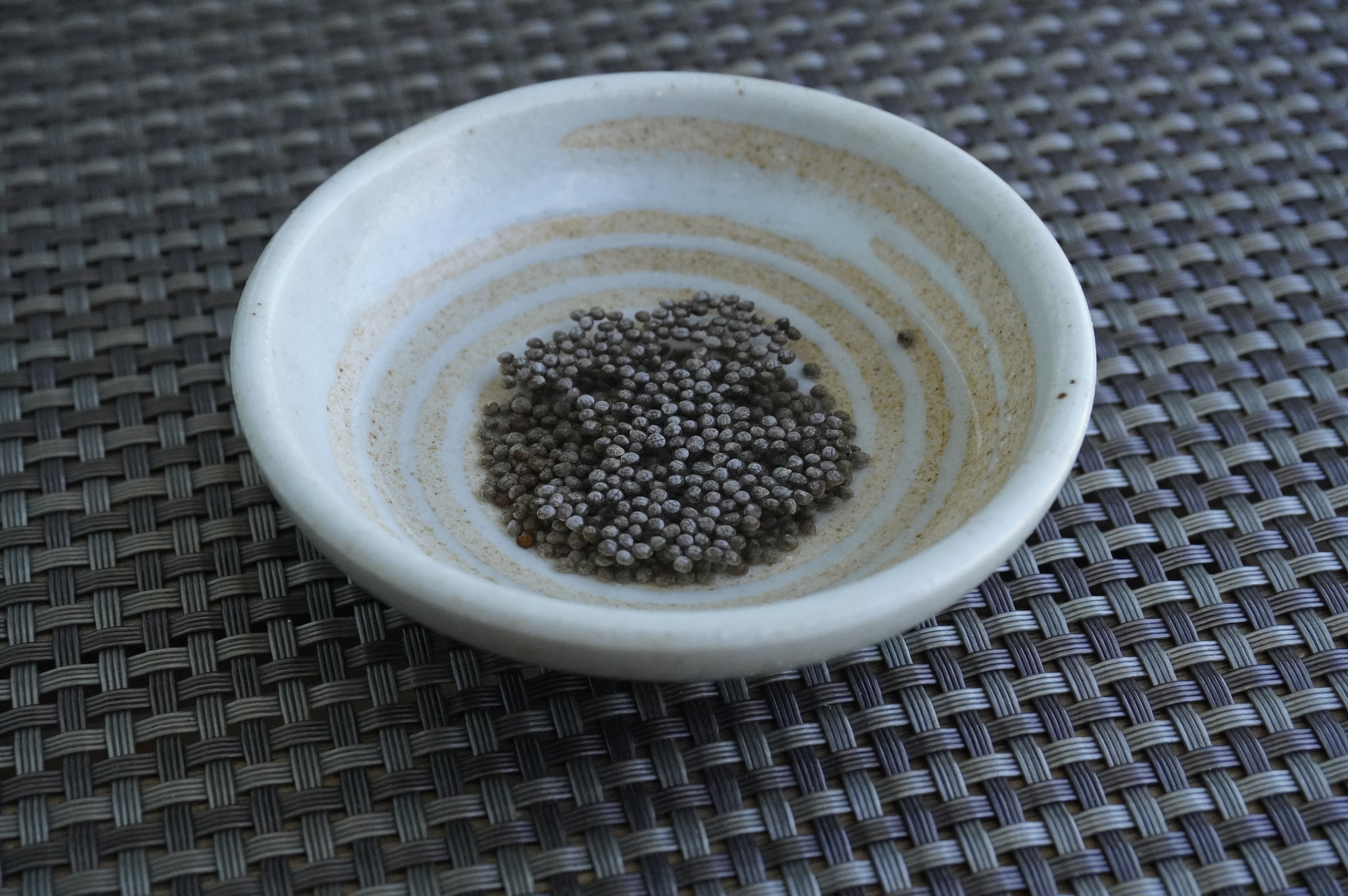
2. Damp cotton pads vs. soil
We also sectioned a couple of seeds to test how effective is germinating seeds on soil; as compared to germinating them in soil directly.
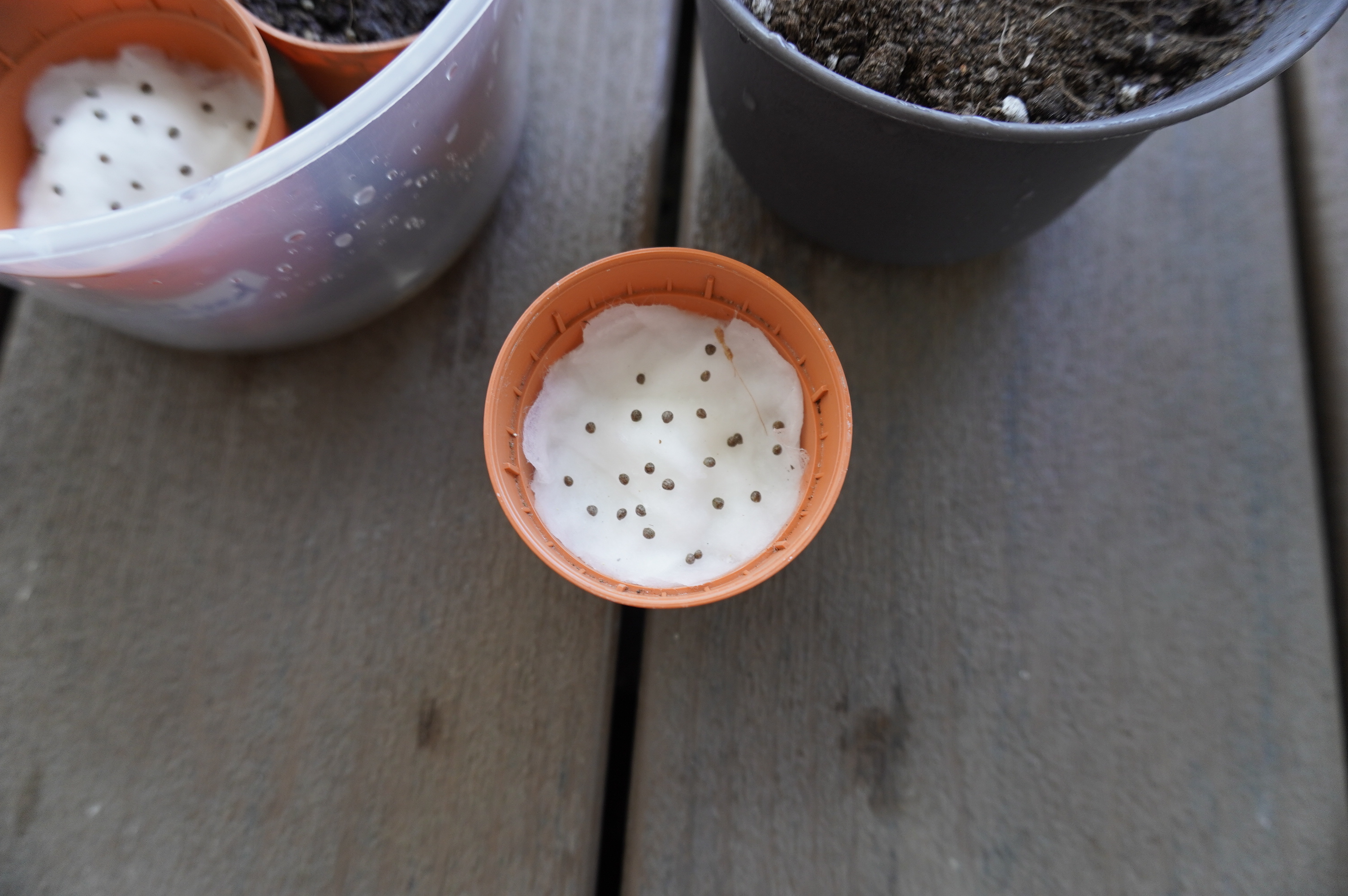
3. 100% humidity
When we germinate cacti seeds, we always have them in a 100% humid environment by placing the pots or seeds in a closed container. This has given us the best germination rates for our cacti and succulents so far; so it would be interesting to see the results when used for edible plants.
Side note: when we germinate seeds from edible plants (we’ve grown Thai basil, Thai bird eye chillis, Japanese bitter gourd, Bangladeshi okura), we generally just throw them directly into soil.
For this experiment, we used the same method and placed our seeds into a closed container to create a 100% humid environment.
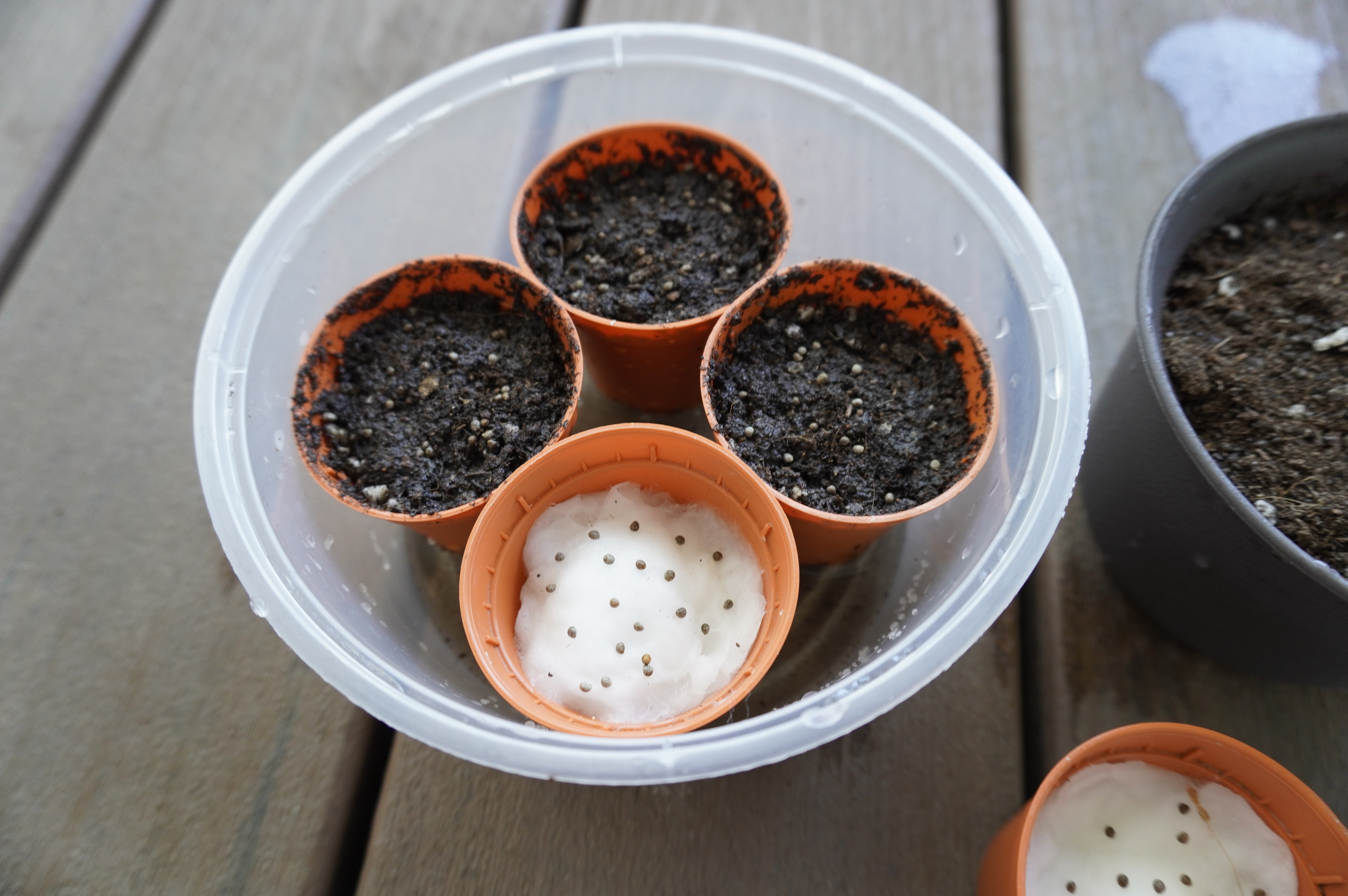
4. HB-101 solution
We gave some of these seedlings water mixed with 1-2 drops of HB-101 concentrate. We have been using HB-101 for more than 1.5 years and find that all plants do react very positively to this.
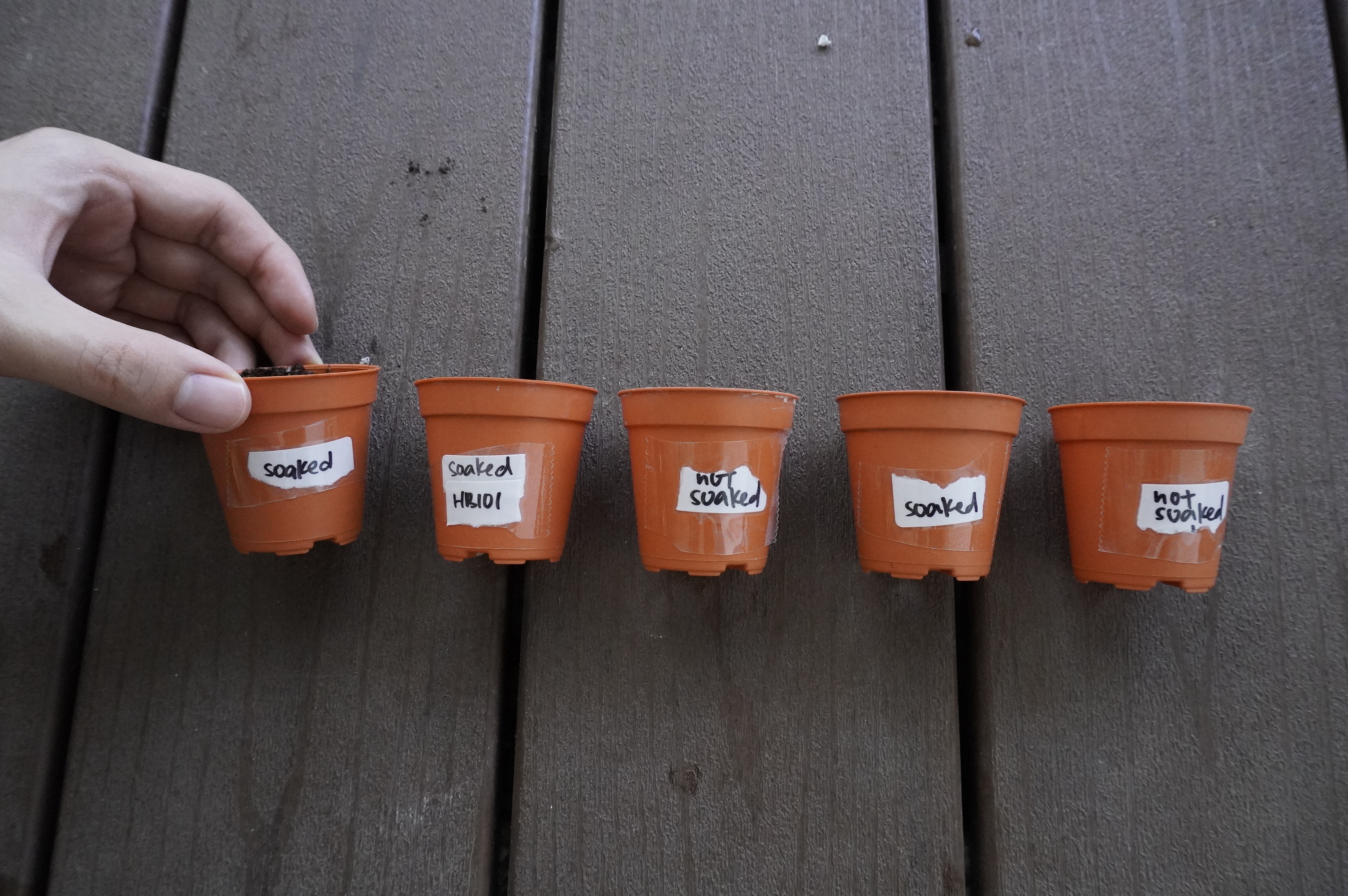
5. The ‘Control’
Finally, we placed the leftover seeds (because we just had too many of them) into a larger pot as a ‘control’.
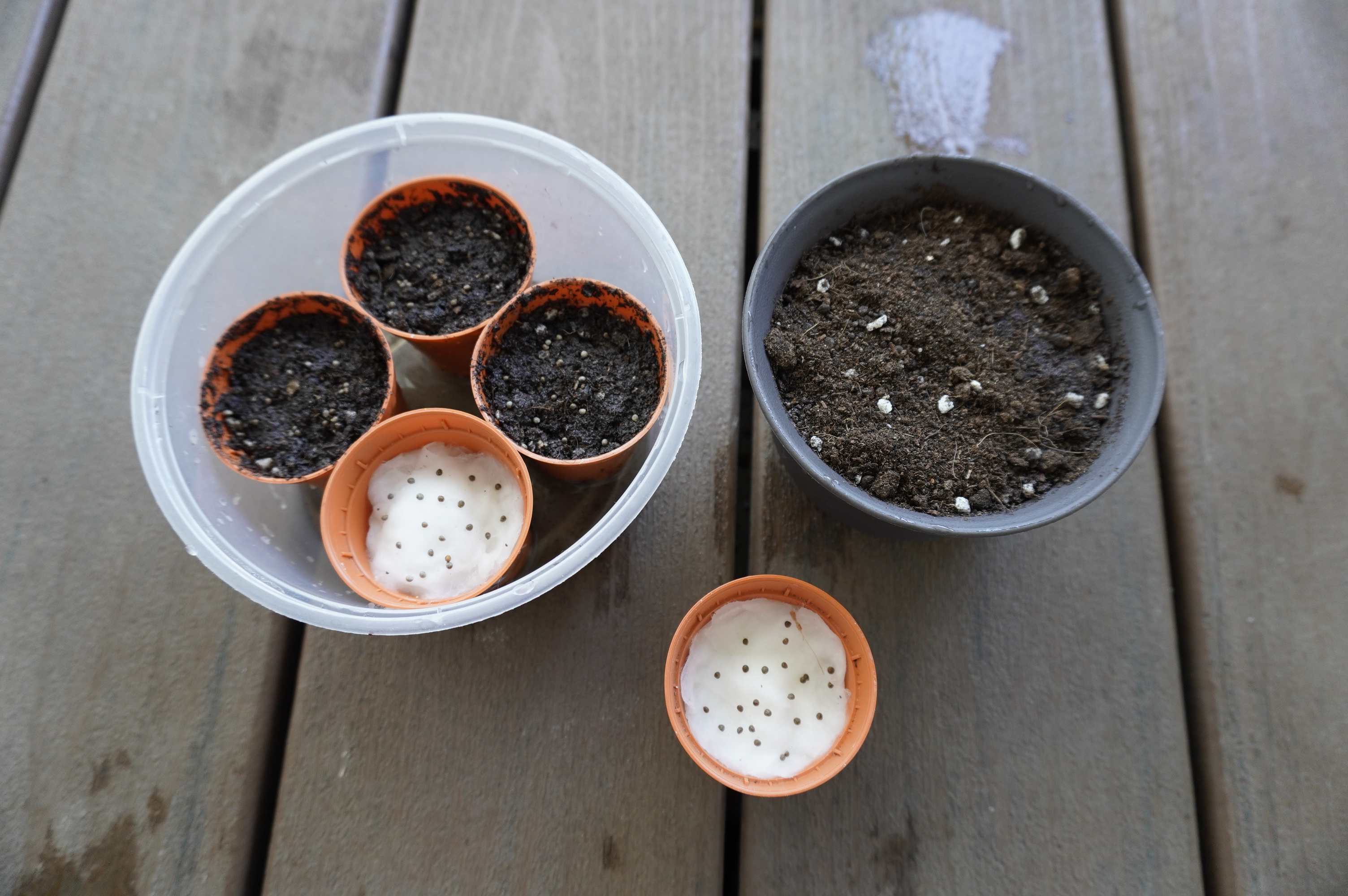
We also ‘sprinkled’ a couple of un-soaked seeds into our harshest environment; i.e. our pot of Thai basil which also has mint, a lobivia cactus, wandering jew, variegated dorstenia foetida seedlings and an air plant. This pot receives direct afternoon sun for most parts of the day – and deserves a post altogether. 😉
Fingers crossed, and until next time!
Let’s Grow Together 🌱
Jiamin
➡️ Update: here’s the follow-up post where I detail our observations 1 month later.

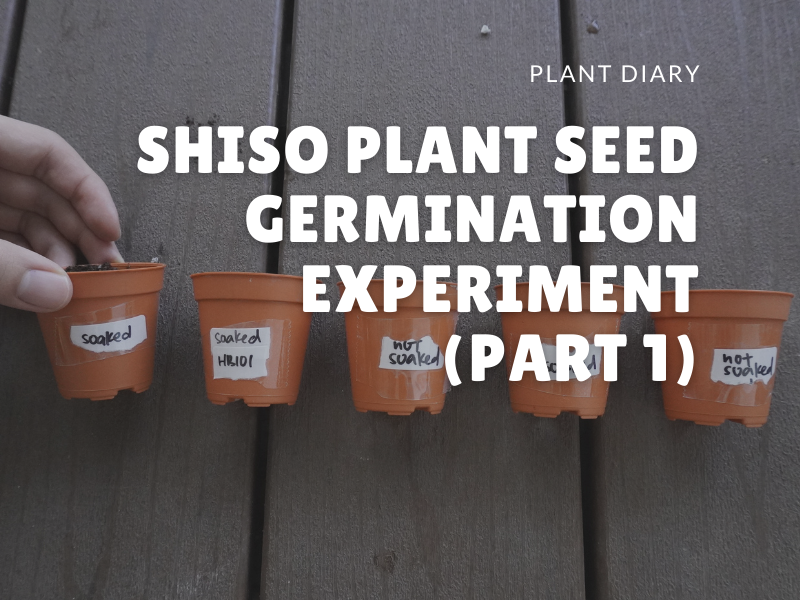
One thought on “Part 1: What’s the best way to germinate seeds? Ft. Shiso Plant”